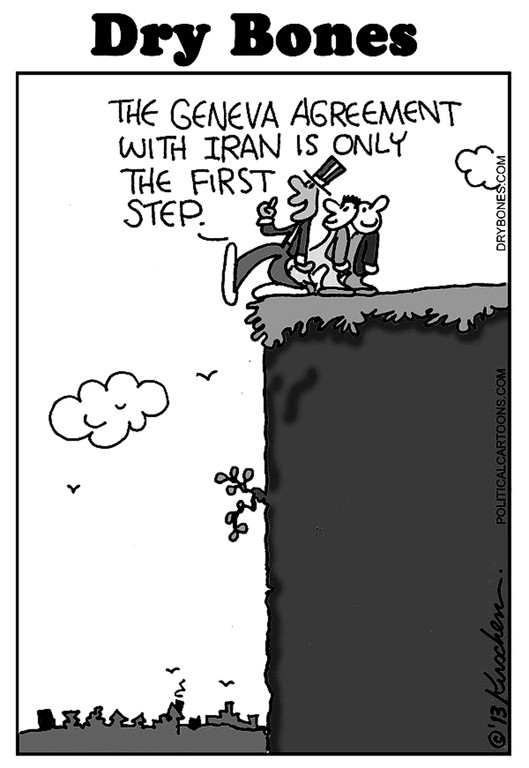Phantom Iran nuclear deal
Top honors go to Harvard University’s Stephen Walt for the most asinine response to the purported deal between the world’s main powers and Iran over the latter’s nuclear program.
Walt co-authored with John Mearsheimer, “The Israel Lobby,” a badly researched, poorly argued screed about how pro-Israel organizations cajoled U.S. administrations into doing things they otherwise wouldn’t have done.
Paranoiacally obsessed with what he regards as the malign influence of Israel and its supporters, Walt has made it his personal mission to defend the Iranian nuclear deal. Like Israeli PM Benjamin Netanyahu, he thinks it’s the deal of the century, though not for the Iranian regime, but for the U.S.!
Hence Walt’s recent tweet: “75% of NatSec experts support Iran deal. So what explains Congressional opposition?” Walt added, “(Hint: maybe a powerful lobby?)”
Just who are these “National Security experts”? In National Journal survey, 75 percent of those questioned believe the deal is good—but with so many qualifications it is almost meaningless. Said one analyst, “If it becomes the final deal, it’s disastrous.”
The awful truth is that no deal has actually been agreed upon. At best, the Geneva talks yielded an understanding that Iran’s nuclear program has to come under more stringent monitoring in exchange for a significant lightening of the sanctions imposed on the Iranian regime.
But because of the fanfare that the Obama administration deliberately stoked around the Geneva talks, governments and international financial institutions are starting to behave as though the sanctions have already been lifted. That is a problematic development, since further talks with the Iranians are to be held in Vienna this week. As Reuters reported, “Western diplomats said the experts must iron out nitty gritty matters of implementation not addressed in Geneva before the deal can be put into practice.” If Iran is already reaping the rewards of an unsigned deal, and if most of the world thinks they have already been very cooperative, then they have little incentive to ensure that the International Atomic Energy Agency is able to carry out rigorous and effective inspections of their nuclear facilities.
The ham-fisted diplomacy of Secretary of State John Kerry appears fatally flawed not just in this area. By granting Iran the right to enrich uranium, the principles articulated in Geneva violate several U.N. Security Council resolutions that insisted Iran had to end all enrichment activity. The regime’s reactor at Arak will remain operational, with every chance of producing weapons-grade plutonium in the future. There is not even acknowledgement of the clandestine origins of Iran’s nuclear program, and no mechanism for ensuring that the regime doesn’t start enriching uranium at secret sites like the one at Fordow.
Against this reality, President Obama’s recent claim that “for the first time in a decade, we have halted progress of Iran’s nuclear program” comes across as hallucinogenically false. It seems as if the president is quite happy for Iran to weaponize its nuclear program, just not while he’s in the White House.
For those like Stephen Walt, as well as organizations like the pro-Tehran National Iranian-American Council, the goal here is not to peacefully resolve the Iranian nuclear question. They are quite happy for Iran to have nuclear weapons, because that would result in Israel, a country they loathe, losing its military edge, thus forcing the U.S. to question the strategic wisdom of its historic alliance with the Jewish state.
That’s why it’s vital to remember that we have not, yet, arrived at such an outcome. And that’s why it’s equally vital to back Israel’s insistence that it be allowed to respond independently to the continuing Iranian threat — including, if necessary, through a military strike.

 47.0°,
Fair
47.0°,
Fair 




